
Browse an alphabetical list of photographs. These historical images portray people, places, and events before, during, and after World War II and the Holocaust.
<< Previous | Displaying results 2341-2350 of 2641 for "Photo" | Next >>
The “Gypsy camp” in Hodonín u Kunštátu (Hodonin bei Kunstadt), Protectorate of Bohemia and Moravia (Czech Republic), 1942.
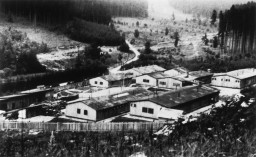
The Institute for Sexual Science was founded in Germany by Dr. Magnus Hirschfeld, a leading researcher of sex, sexuality, and gender. In 1933, the Nazis looted the institute and forced it to close. Photo published in 1924.
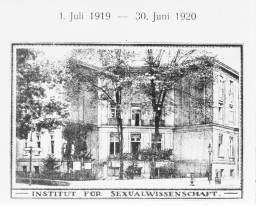
American judges (top row, seated) during the Doctors Trial, case #1 of the Subsequent Nuremberg Proceedings. Presiding Judge Walter B. Beals is seated second from the left. Nuremberg, Germany, December 9, 1946–August 20, 1947.
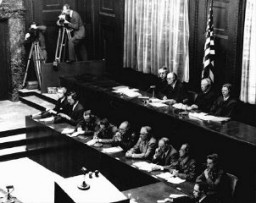
Exterior view of the Jewish orphanage run by Janusz Korczak. Established in 1912, the orphanage was located at 92 Krochmalna Street in Warsaw, Poland. Photo taken circa 1935.
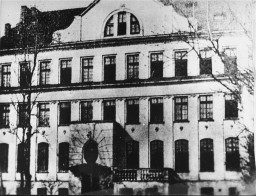
The Ku Klux Klan marches down Pennsylvania Ave in Washington, DC. Photograph by Harris & Ewing, 1926.
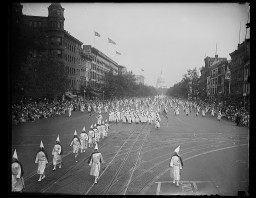
The Kusserow family was active in their region distributing religious literature and teaching Bible study classes in their home. They were Jehovah's Witnesses. Their house was conveniently situated for fellow Jehovah's Witnesses along the tram route connecting the cities of Paderborn and Detmold. For the first three years after the Nazis came to power, the Kusserows endured moderate persecution by local Gestapo agents, who often came to search their home for religious materials. In 1936, Nazi police…
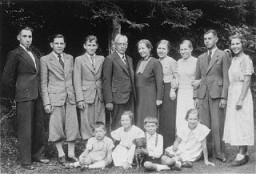
The Kusserow family home in Bad Lippspringe. The family, Jehovah's Witnesses, kept religious materials in the trunk of the car and distributed them from it as well. The Kusserow family was active in their region distributing religious literature and teaching Bible study classes in their home. Their house was conveniently situated for fellow Witnesses along the tram route connecting the cities of Paderborn and Detmold. For the first three years after the Nazis came to power, the Kusserows endured moderate…
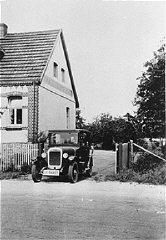
This photograph shows the Kusserow family home in Bad Lippspringe and the tram tracks in front of it. The Kusserow family members were active Jehovah's Witnesses in their region. They distributed religious literature and taught Bible study classes in their home. Their house was conveniently situated for fellow Witnesses along the tram route connecting the cities of Paderborn and Detmold. For the first three years after the Nazis came to power, the Kusserows endured moderate persecution by local Gestapo…
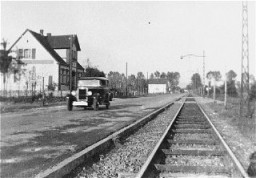
The main gate of the Wöbbelin concentration camp. On May 2, 1945, the 8th Infantry Division and the 82nd Airborne Division encountered the Wöbbelin concentration camp. Photograph taken upon the liberation of the camp by US forces. Germany, May 4, 1945.
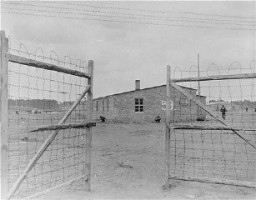
The Margules children wearing Jewish badges. Originally from Warsaw, the Margules family settled in Paris in the 1930s. Three of the children were deported and killed in 1942. Only one daughter (pictured at the bottom right) survived the war. Paris, France, 1941.
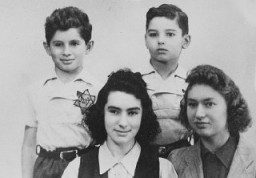
We would like to thank Crown Family Philanthropies, Abe and Ida Cooper Foundation, the Claims Conference, EVZ, and BMF for supporting the ongoing work to create content and resources for the Holocaust Encyclopedia. View the list of donor acknowledgement.